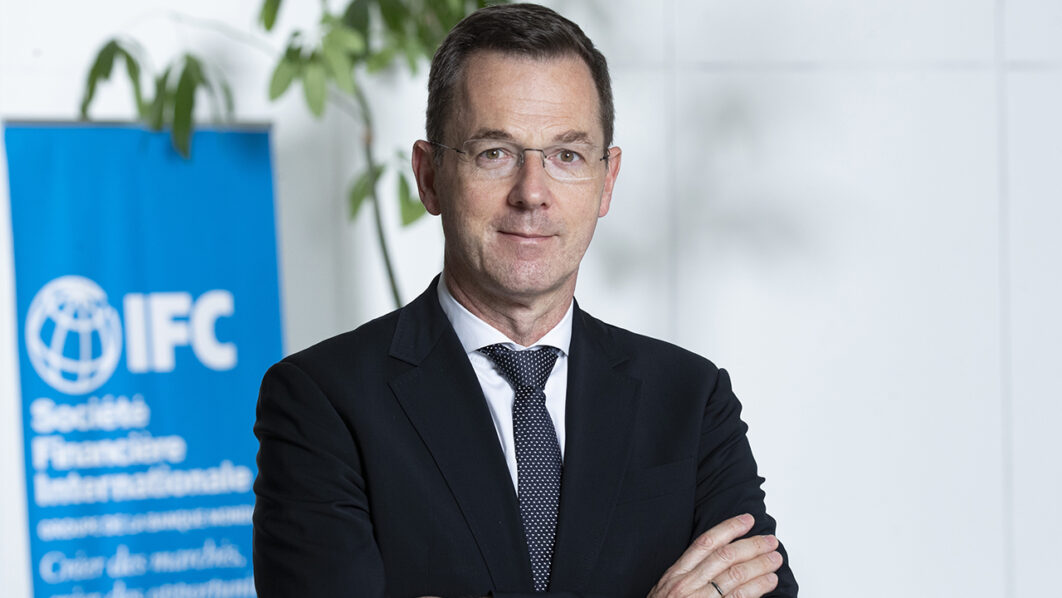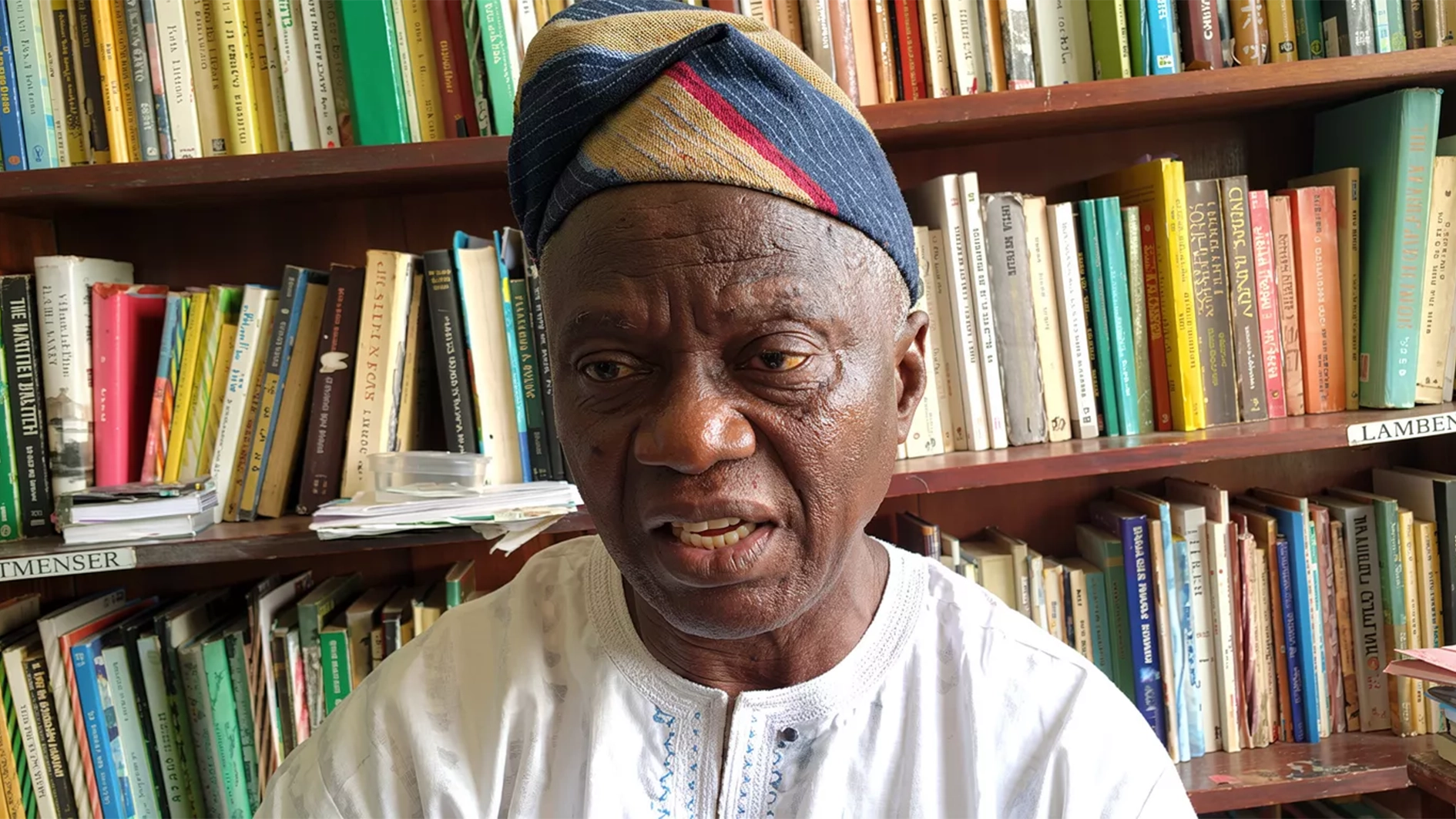
Sergio Pimenta is the Vice President, Africa at the International Finance Corporation (IFC). In this interview with CHUKS NWANNE and KINGSLEY JEREMIAH, Pimenta discussed the many challenges facing African governments in funding development in the face of rising inflation and higher interest rates. He also spoke on the strategies the World Bank is deploying through the IFC to tackle economic challenges in Nigeria and other African countries.
The IFC has invested about $60 billion in African businesses and financial institutions, with a current portfolio exceeding $12 billion. What would you describe as the most critical gains of these investments in the last five years?
The last five years have seen significant growth in our operations across Africa. Regarding the size of our portfolio and investments, there are several key areas where we’ve made important strides. First, we’ve been diversifying our geographical presence to better support Africa. As the private sector arm of the World Bank Group, IFC finances and supports private sector companies in over 40 countries across the continent. By establishing offices in these countries, we’ve enhanced our ability to assist Africa from within, being on the ground.
We’ve also adapted to the changes we observe in Africa. One key shift is the increasing recognition that development must be driven by African companies, African people and the African youth. We’ve adjusted our approach to better support local and regional companies. For instance, in Nigeria, we’ve expanded our presence significantly. What was once a smaller office in Lagos is now a hub with nearly 100 staff members, including a director who can make immediate investment decisions on the ground. This local presence allows us to better understand and support the local context and companies.
Another trend is our increased focus on supporting Small and Medium-sized Enterprises (SMEs). While IFC is often associated with large transactions, which tend to grab headlines, supporting SMEs is equally important. Last year alone, we deployed around $2 billion to support SMEs in Africa.
Finally, we’ve noticed a strong trend towards digitalisation, partly accelerated by the pandemic. We’ve invested heavily in digital infrastructure such as cables, towers and operators, as well as in startups that are leveraging the digital economy to create new businesses. This is crucial because Africa’s young population is embracing the digital economy in ways that are driving innovation and job creation. We are committed to supporting this movement and helping young Africans find opportunities in this growing sector.
This is a trend we’ve been driving across Africa. As a development institution, our goal is to foster development through the private sector. To achieve this, we need to understand what is expected from us, which we gain through conversations and exchanges with civil society, governments, the private sector and other stakeholders. We’ve heard feedback that IFC was perceived as too distant, being based in Washington DC, with limited offices in Africa. In response, we shifted our strategy to increase our presence on the continent. This allows us to better understand the needs of African companies and deliver services that meet those needs. It’s not just in Nigeria, where we have one of our five large offices, but also in 35 other smaller offices across Africa. This combination of expertise in larger offices and local presence in smaller markets enables us to effectively support companies wherever they need us.
Are you concerned that despite the presence of development funders like the IFC, countries like Nigeria are still facing rising poverty, unemployment and hunger? Are Nigeria’s strategies and that of IFC faulty?
Over the past 10 to 20 years, Africa experienced a decade of strong growth until the pandemic came. This caused significant economic impacts. While the pandemic’s health effects were less severe in Africa compared to other regions, its economic consequences affected Africa significantly than other regions. This was worsened by the effects of climate change, despite the continent contributing minimally to it.
With rising inflation, higher interest rates and other challenges, African governments have found it increasingly difficult to fund development, as they are burdened with higher debt costs. This situation calls for increased private sector involvement to complement government efforts.
On our side, we have been stepping up our efforts, recognising the demand for support. The IFC’s projects have led to job creation, economic growth, environmental and social improvements, and have helped mitigate the effects of climate change. The goal now is to scale these successes to reach and benefit even more people across the continent.
As of February this year, your investment in Nigeria stood at about $2 billion. Can you break down the strategic areas of this investment and its performance?
We can provide the most recent data on our activities in Nigeria, which is not only Africa’s largest economy but also a critical area of focus for the IFC globally. Nigeria ranks as our second-largest area of intervention in Africa, with the largest pipeline of investments on the continent. Our approach is comprehensive, targeting key sectors rather than just individual projects.
One major focus has been on industrialisation, particularly in sectors like fertilizers and chemicals, where Nigeria’s natural resources offer significant opportunities for value addition. We’ve also been heavily involved in supporting SMEs by working with financial institutions to provide risk-sharing facilities, ensuring that funds reach these vibrant, capable firms to help them grow.
Also, we have invested significantly in Nigeria’s infrastructure across various sectors, including health. These efforts are part of our broader strategy to bolster Nigeria’s economy by addressing key areas of need.
Enhancing trade facilitation and economic growth in Africa is one of your key priorities. What are your success stories and impediments in this regard?
When we look at success stories, our institution is committed to taking more risks and helping more people. Taking risks means that some things will work, while others might not. However, we tend to see better outcomes when we present unique proposals that other institutions may not be as active on. Instead of just financing a single project, we focus on addressing broader development challenges. We examine a problem in a country such as access to energy, healthcare or financing and ask ourselves how we can create and support an ecosystem that resolves this issue.
In Nigeria, for example, we are exploring ways to develop the country’s massive agricultural potential. This support goes beyond financing; it includes technical assistance and other forms of aid. For instance, we recently financed a company that specialises in cocoa transformation. This company not only helps farmers grow cocoa but also adds value by processing it within the country. A few years ago, Nigeria was a significant player in the cocoa industry, but it has since slowed down for various reasons. Now, a young entrepreneur has taken the initiative to revitalise the industry in northern Nigeria, creating jobs and working with many farmers, including women.
We consider this a success story, and we are committed to supporting their ambition to do more and expand further. This is the type of intervention we aim to replicate, not just in the cocoa sector but across other agricultural sectors in Nigeria.
What is the significance of Nigeria in the IFC’s overall strategy in Africa?
Nigeria is not only the largest economy in Africa, but it also has a very large and young population. Unfortunately, when you look at global poverty statistics, Nigeria still has a significant number of poor people. This highlights the urgent need to support this population.
However, there is another dimension to consider beyond the challenges, such as finding jobs for the growing number of young people entering the market. Nigeria also presents immense opportunities. The population is incredibly dynamic and has developed a remarkable capacity for resilience and business growth over the years. The private sector in Nigeria is strong, though often informal. Our focus is on helping these individuals transition into the formal economy, so they can contribute not only to their own livelihoods but also to the broader economy by creating jobs and supporting their communities.
We see a lot of opportunities in Nigeria, especially with the ongoing government reforms. While these reforms are challenging and have short-term impacts, the medium-term outcomes are expected to be much more positive. That’s where we come in to ensure that people have the opportunities to create good, well-paying jobs that provide sustainability for their families and contribute to the overall growth of the economy.
For us, Nigeria is and remains a strategically important country. It’s a diverse nation, and we are not just focusing on projects in Lagos and Abuja; we want to finance initiatives across as many states as possible. The challenges in the South and North are very different; so our goal is to tailor private sector solutions that are appropriate for these distinct realities.
How do you assess your operation now, as against what you were doing before and how has that changed what you are doing? What are those key challenges that you always encounter?
About three years ago, we made the decision to expand our presence in Lagos. Previously, we had an office here, but we wanted it to be larger and more autonomous. Now, the office has its own leadership and decision-making power. We appointed a director, Dalia Khalifa, who is based in Lagos and is leading our operations in Nigeria. This decision was a significant step forward for us, as we now have a team of around 100 experts in various fields, including energy, financial institutions, agriculture, health and education.
Having this expertise locally is a major advantage. When a company in Nigeria seeks our support, we no longer have to rely on someone from Washington or elsewhere to fly in, which could delay things by weeks. Now, we have the capacity to respond quickly. Our experts can meet in Lagos, travel to Abuja or visit any part of the country at short notice to address needs and provide assistance. This local presence has proven invaluable.
Of course, like many countries in Africa, Nigeria faces challenges. We aim to deploy our funding and advisory services as efficiently as possible, but as an international organisation with high standards, we also want to ensure that companies meet those standards. While this can take time, being on the ground here helps expedite the process. If a company faces challenges, we can sit down with them, offer guidance and support them as they work toward their goals.
What brought you to Nigeria this time?
I’m in Nigeria for the African Caucus Governors’ meeting. This annual event brings together finance ministers and central bank governors from across Africa to align the continent’s agenda ahead of the IMF and World Bank annual meetings in Washington. This year’s focus is on intra-African trade; how Africa can develop through trade within the continent. This aligns closely with what we at the IFC are working on, especially in terms of deploying funding for trade, which we see as having great potential for job creation and economic growth.
It’s my third visit to Nigeria and certainly not my last. I’m excited about the progress we are making and the potential ahead.






